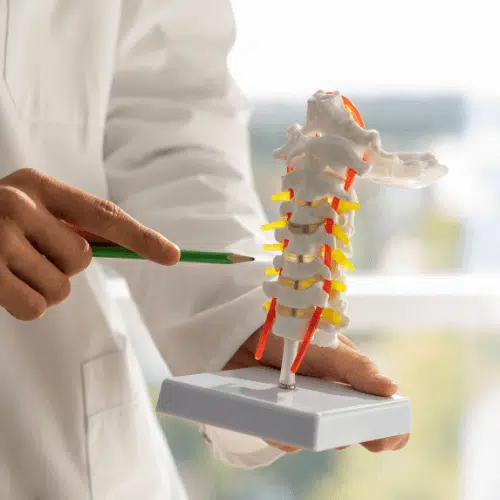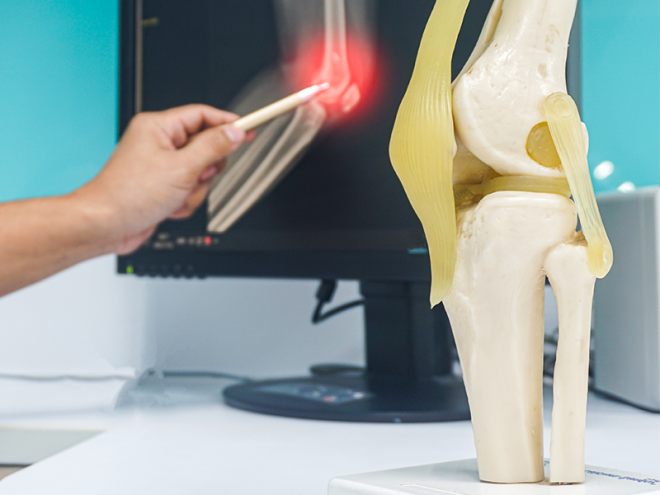The smart Trick of Axis Spine And Orthopedics That Nobody is Talking About
The smart Trick of Axis Spine And Orthopedics That Nobody is Talking About
Blog Article
The Of Axis Spine And Orthopedics
Table of ContentsGetting The Axis Spine And Orthopedics To WorkThe 5-Second Trick For Axis Spine And OrthopedicsEverything about Axis Spine And OrthopedicsThe 45-Second Trick For Axis Spine And Orthopedics
An orthopedic doctor is a physician that specializes in dealing with problems of the bones, joints, and connective tissues, and ensuring you preserve a healthy musculoskeletal system., we have actually highly certified orthopedic specialists that are qualified of treating clients of all ages. I got included in study during my very first year of clinical school, and I began making connections with orthopedic cosmetic surgeons early on.
Follow these guidelines very carefully to stay clear of difficulties during the treatment. Discuss the post-operative care strategy with your surgeon. Recognize what to expect during the recuperation duration and for how long it will take to resume everyday tasks. Organize for transport to and from the health center on the day of surgical procedure.
6 Easy Facts About Axis Spine And Orthopedics Explained

Your doctor will supply lots of info concerning post-operative care, consisting of exactly how to remain clean and maintain the surgical location tidy. Complying with these ideas can prepare you physically and psychologically for your orthopedic surgical procedure. Remember to keep a favorable expectation and trust your clinical team's competence, contributing to a smoother healing process.

Otherwise, you'll just get puzzled. Think of the large picture. No one expects you to know anything, so don't try to memorize a number of random realities. Whether you're pursuing your children, tackling treking routes, or displaying your best dance relocations, keeping your bone and joint system in fantastic form is crucial. Otherwise, joint pain can actually mess up your life.
The consistent pain in your knee or the stiffness in your shoulder can reduce you down and make basic tasks tough. Common conditions dealt with by orthopedic specialists are: Fractures and Bone Injury: Broken bones and other injuries from accidents or influences. Joint inflammation: Especially osteoarthritis, which causes joint pain and stiffness. Benign Soft Cells Tumors: Non-cancerous growths in muscular tissues or various other soft tissues. Bone Cancer Cells: Growths in the bones. Bursitis: Swelling of the small sacs of.
Little Known Questions About Axis Spine And Orthopedics.
fluid that cushion the bones, tendons, and muscle mass near your joints. Neck and Reduced Back Discomfort: Concerns affecting the spinal column. Orthopedic Trauma: Serious injuries impacting bones, joints, or soft tissues. Sports Injuries: Troubles like tendon rips, ligament injuries, and joint discomfort from athletic activities.
Strains and Stress: Injuries to ligaments and muscles. Tendinitis: Inflammation of the ligaments. Orthopedic doctors execute a variety of treatments to aid people with bone and joint problems. Common examples are knee and hip replacements. Joint Restoration: Reconstructing a harmed joint to recover its feature. Bone Grafting: Taking bone from one component of the body and transplanting it to an additional location to repair and rebuild harmed bones. Reconnecting Nerves: Repairing broken nerves to bring back movement and feeling. Spinal Disk Substitute: Replacing a damaged back disk with a fabricated one to soothe pain and recover function. You'll require to take and pass the Medical University Admission Test( MCAT). This standard test assesses your expertise and skills needed for success in clinical school. Clinical institution is an intense

Indicators on Axis Spine And Orthopedics You Should Know
Next, they complete an orthopedic residency. It's commonly 5 years and gives hands-on learning in a medical setup. Limited movement as a result of discomfort. Stiffness. First visits often consist of: Reviewing your symptoms, case history and way of life. A physical examination, including moving the impacted joint in particular ways. Imaging research studies, such as an X-ray. Description of your diagnosis.
Treatment suggestions. Some problems need extra imaging, like a CT check or MRI for even more thorough views of the uncomfortable area. Your orthopedist will certainly suggest therapies to minimize symptoms up until you get a medical diagnosis. Orthopedic specialists specialize in nonsurgical and surgical strategies. For sure sorts of orthopedic injury or genetic problems, surgical treatment is usually the very first line of treatment. For many various other problems, orthopedists attempt nonsurgical treatments. It may take look here more than one sort of treatment to accomplish lasting alleviation. Picking the right is crucial for effective medical results and boosted individual recovery. With a wide range of alternatives available out there, it can be frustrating for both doctors and clients to make an informed decision. The leading five variables to consider when selecting an orthopedic implant are medical compatibility, cost-effectiveness, factors to consider for alteration surgical procedure, patient-specific variables, and the layout and technology of the dental implant. They come in numerous shapes, dimensions, and products, each serving a certain function based on the patient's needs. Recognizing the essentials of orthopedic implants is important prior to diving into the decision-making process. One of the leading considerations when picking an orthopedic implant is its compatibility with the surgery. Different implants are developed for different medical methods and approaches. The orthopedic dental implant should be especially made to fit the client's anatomy and make sure security during the recovery process. Surgical compatibility entails variables such as dental implant dimension, form, and product. The success of orthopedic treatments counts heavily on the correct option and positioning of implants that work with the person's makeup and clinical history. By focusing on patient security and wellness, orthopedic surgeons can attain successful results and give the finest quality of care to their clients. Surgeons have to meticulously take into consideration the biomechanical homes of the implant and just how it will incorporate with the individual's bone framework. This will certainly add to much better medical results, minimized problems, and shorter recuperation time. When picking implants for a patient, it is vital to take into consideration a range of patient-specific variables that can influence the success and result of the treatment. These variables encompass the patient's age, bone quality and quantity, oral health and wellness condition, medical background, way of living habits, and visual choices. For older clients with compromised bone density, much shorter implants or implanting treatments might be useful to give the essential security and support. 3. Is the dimension of the orthopedic implant an important factor to consider? Exactly how does it influence the surgical treatment and the client's recovery? Yes, the size of the implant is important as it should match the person's structure for correct fit and functionality. 4. Can the individual's age and way of life play a function in picking one of the most ideal orthopedic implant? Absolutely. Exactly how does the cost of an orthopedic dental implant aspect into the decision-making procedure, and are there means to balance top quality with cost? The expense of the dental implant is an important factor to consider, but it needs to not be the single determining aspect. Stabilizing high quality with affordability entails evaluating various implant options 'long-term benefits and possible difficulties. Report this page